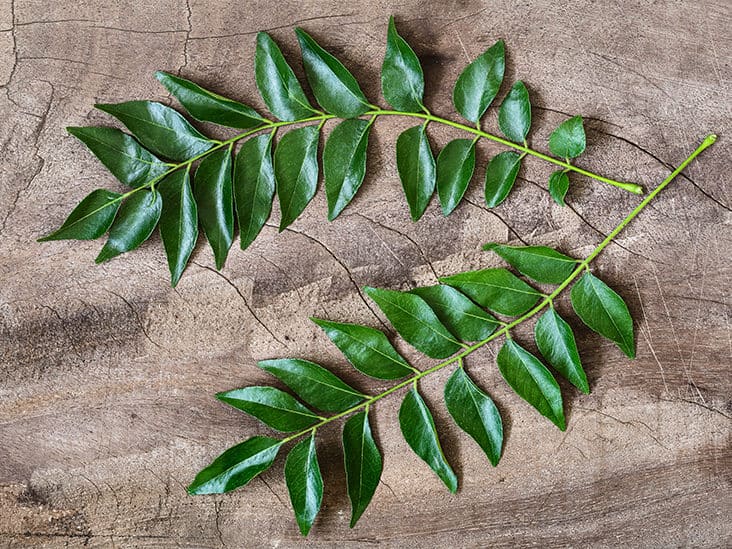The curry tree is a tropical to sub-tropical tree in the family Rutaceae, and is native to Asia. The plant is also sometimes called sweet neem, though M.
Curry leaves are not the same as curry powder, though they’re often added to this popular spice mixture and popularly used in cooking to add flavor to dishes, such as curries, rice dishes, and dals.
Here are 9 impressive benefits and uses of curry leaves.
- Rich in powerful plant compounds
Curry leaves are rich in protective plant substances, such as alkaloids, glycosides, and phenolic compounds, that give this fragrant herb potent health benefits.
- May reduce heart disease risk factors
Risk factors like high cholesterol and triglyceride levels may increase your risk of developing heart disease. Adding curry leaves to your diet may help reduce some of these risk factors.
- May have neuroprotective properties
Some research has shown that curry leaves may help protect the health of your nervous system, including your brain.
Alzheimer’s disease is a progressive brain disease characterized by loss of neurons and signs of oxidative stress.
- May have anticancer effects
Curry leaves contain compounds that have significant anticancer effects.
A test-tube study involving three curry extract samples from curry leaves grown in different locations in Malaysia found that they all exhibited powerful anticancer effects and inhibited the growth of an aggressive type of breast cancer.







